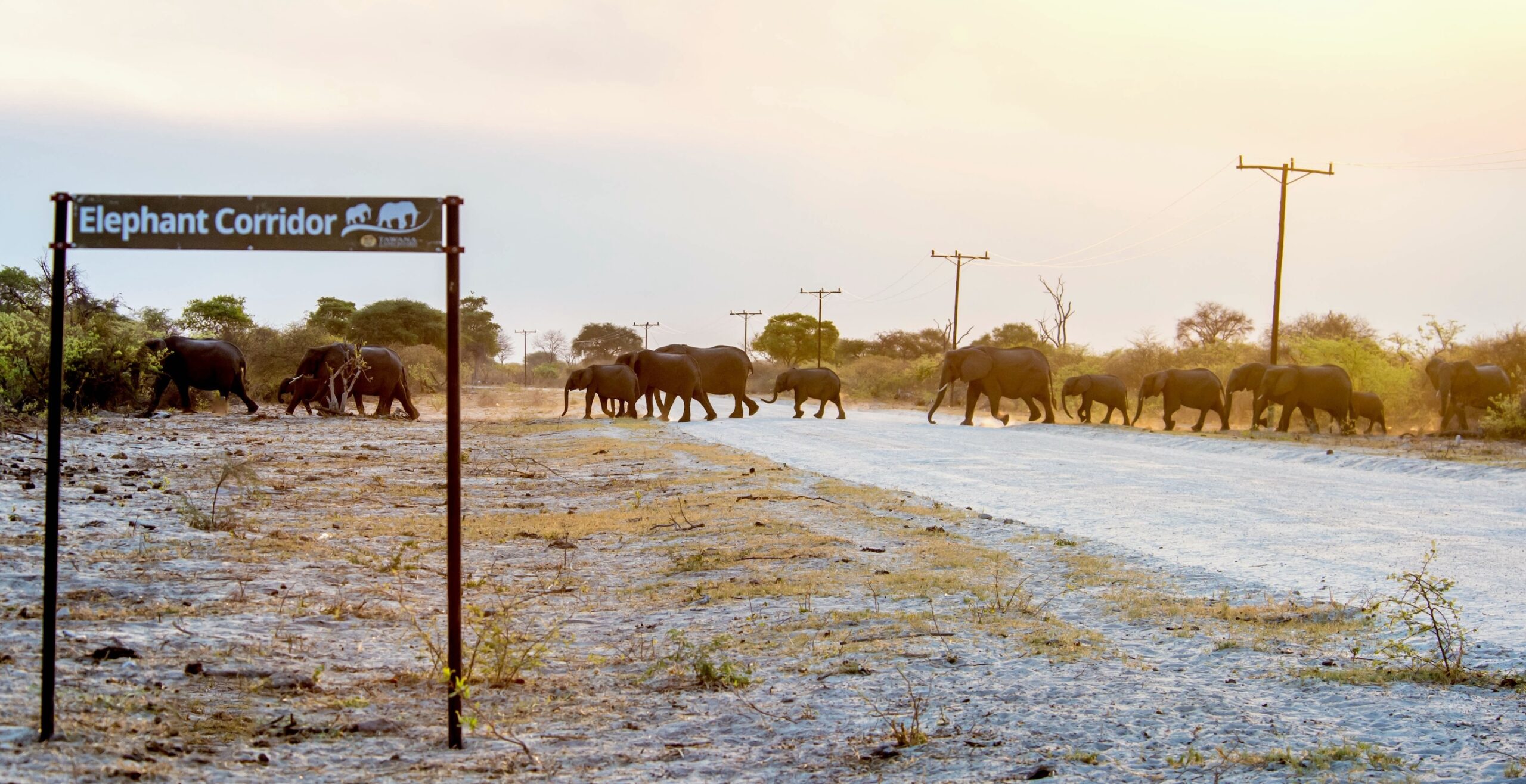NORTH STARS:
Community support
Product & consumption
Wildlife & ecosystems
“We decided we needed to turn millet into a value-added product that would generate enough return for us to be able to pay farmers a premium if they conduct these elephant-aware farming practices.“
On the edge of the Okavango Delta, the Okavango Craft Brewery has worked to turn the tide in conflicts between elephants and humans using a unique approach: brewing beer to change minds. By purchasing millet from local farmers at a premium, the brewery encourages elephant-friendly farming practices, creating a win-win for both the farmers and the wild giants.
Saving Elephants One Sip at a Time
Okavango Craft Brewery Co-Founder Graham McCulloch’s childhood fascination with wildlife would eventually lead him to Africa. After earning a degree in zoology at the University of Dundee in Scotland, he met a man in Scotland who needed help building a safari camp in Botswana.
What was intended as only a year of work in 1994, turned into a lifelong commitment. McCulloch’s initial year in Botswana stretched into four, and this immersion in Botswana’s wilderness laid the foundation for his future work in conservation.
The Okavango Delta, a UNESCO World Heritage site, is a vast inland river delta known for its biodiversity. The region boasts one of the largest elephant populations on the planet with herds numbering over 130,000, or roughly one elephant per person in Botswana. These creatures, while vital to the ecosystem, can feed on and trample crops and cause bodily harm to the local communities trying to carve out a living through subsistence agriculture.
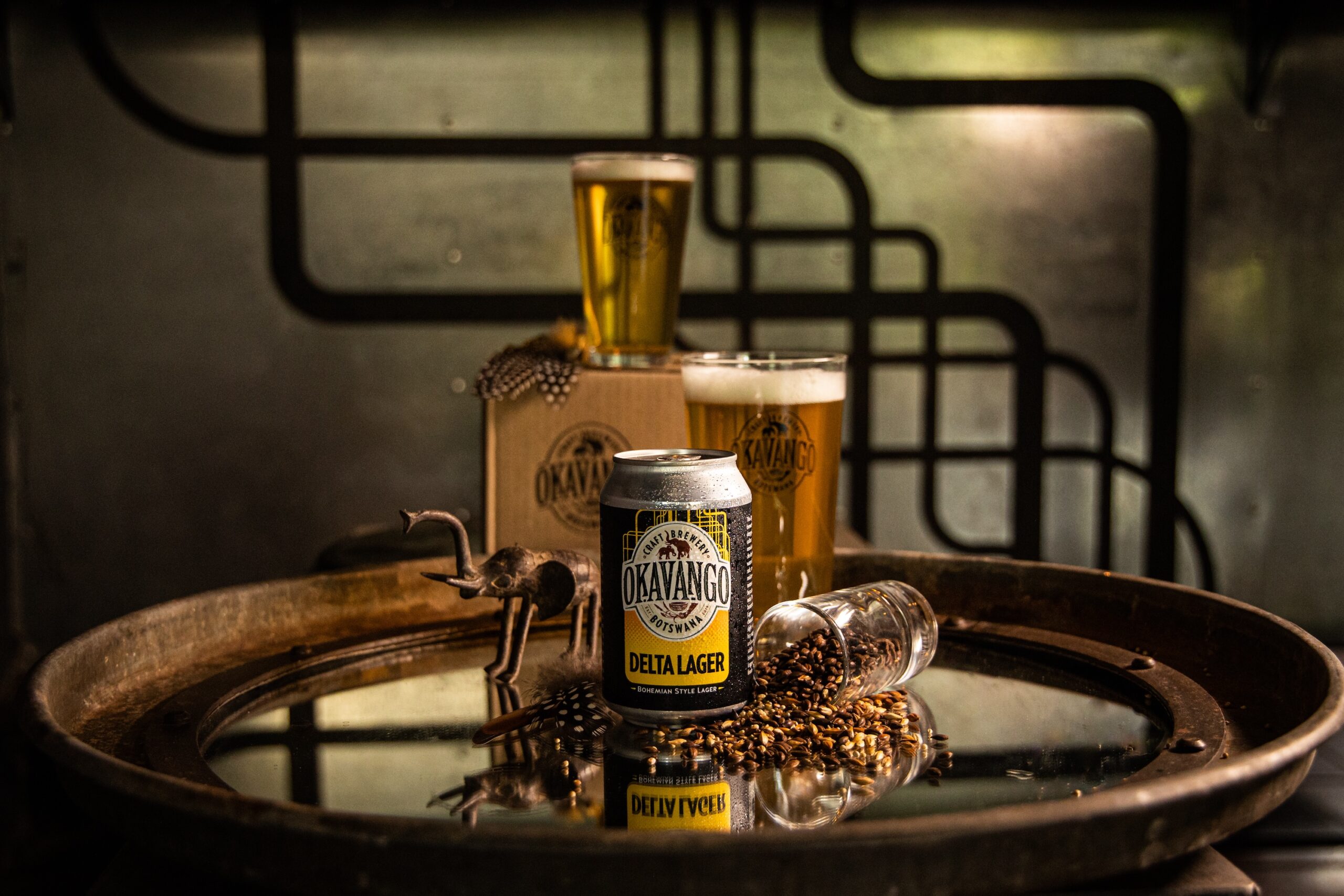
Image courtesy of Okavango Craft Brewery
Conflict in the Delta
Dr. Anna Songhurst, McCulloch’s wife and partner in conservation, conducted her own doctoral research focused on human-elephant conflict in the Okavango Delta, an issue that would become the cornerstone of their shared mission. In 2011, armed with their combined expertise and a passion for finding sustainable solutions, Graham and Anna founded a nonprofit organization (NGO) called Ecoexist. Ecoexist sought to address the growing conflicts between elephants and farmers in the communities surrounding the Okavango Delta.
“We often say, if you really want to help protect elephants or conserve elephants, one great way to do that is to support the people who live with them and share the landscape with them,” says McCulloch. “We all love elephants, but living with an elephant in your backyard is quite a thing. They’re quite destructive,” he adds.
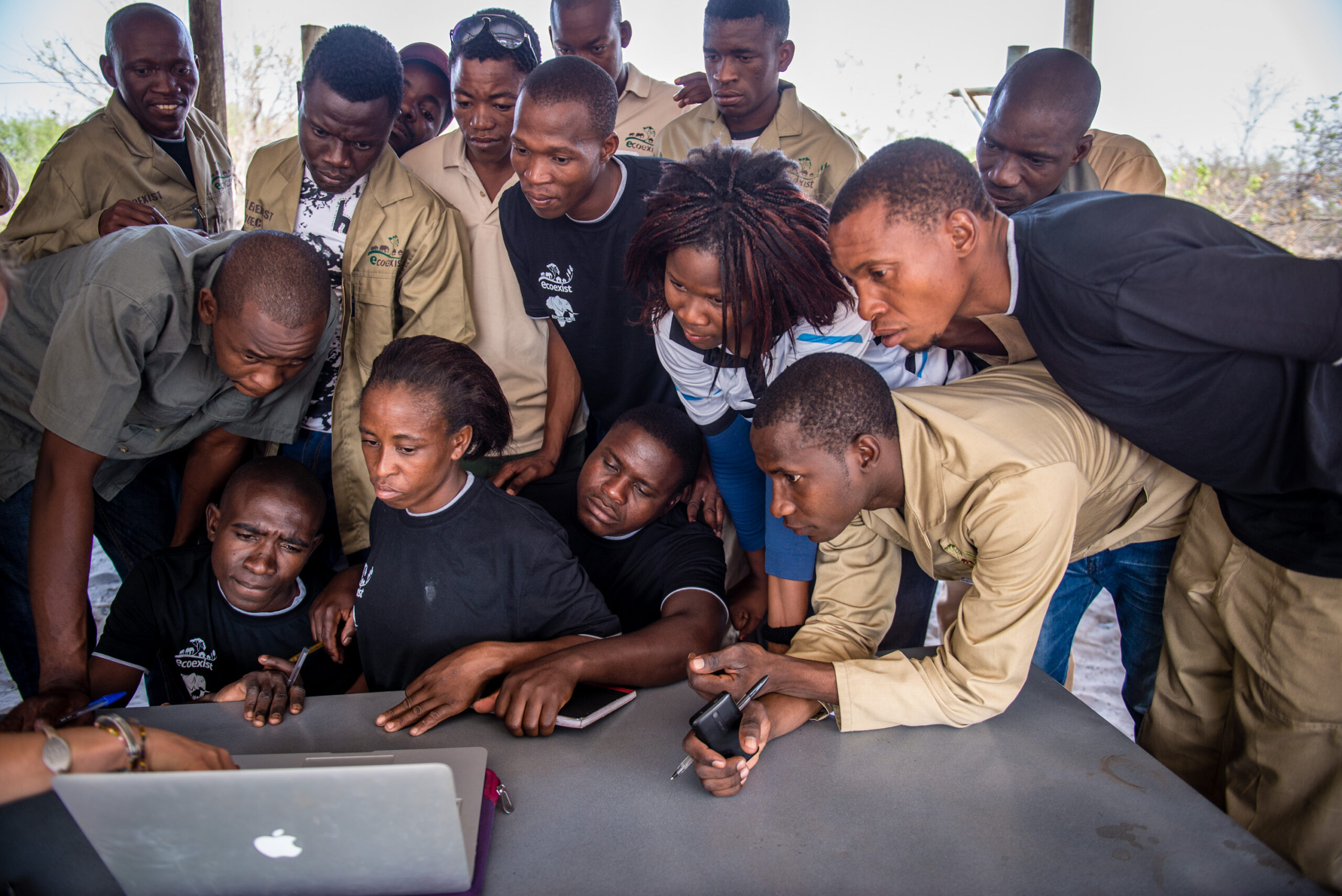
Image courtesy of Okavango Craft Brewery
Finding Ways For Humans and Elephants to Coexist
Farmers face a multitude of challenges. Elephants, driven by natural instincts and migration patterns often trample through and forage on crops, destroying in hours what farmers have spent months cultivating. The conflict extends beyond crop destruction—it affects daily life, from accessing water to children’s safety on their way to school.
But identifying the problem was just the first step. Ecoexist began implementing and testing various non-lethal elephant deterrent methods, including techniques like beehive fences—a method developed by Dr. Lucy King of Save the Elephants in Kenya—as well as chili pepper fences and solar-powered electric fences.
“Elephants are quite afraid of bees, especially swarming bees,” says McCulloch. “When bees swarm, they will come and sting elephants in the eye and the ears, up the trunk and stuff—sensitive areas,” he says.
However, using non-lethal deterrents requires significant effort from farmers. Ecoexist’s team realized that for their approach to be sustainable, they needed to somehow reward farmers who used these “elephant-aware” practices.
“We realized we needed to turn millet into a product that would generate enough return for us to be able to pay farmers a premium if they implemented these elephant-aware farming practices,” says McCulloch. “One of our good friends said, ‘Well, why don’t we try making craft beer?'”
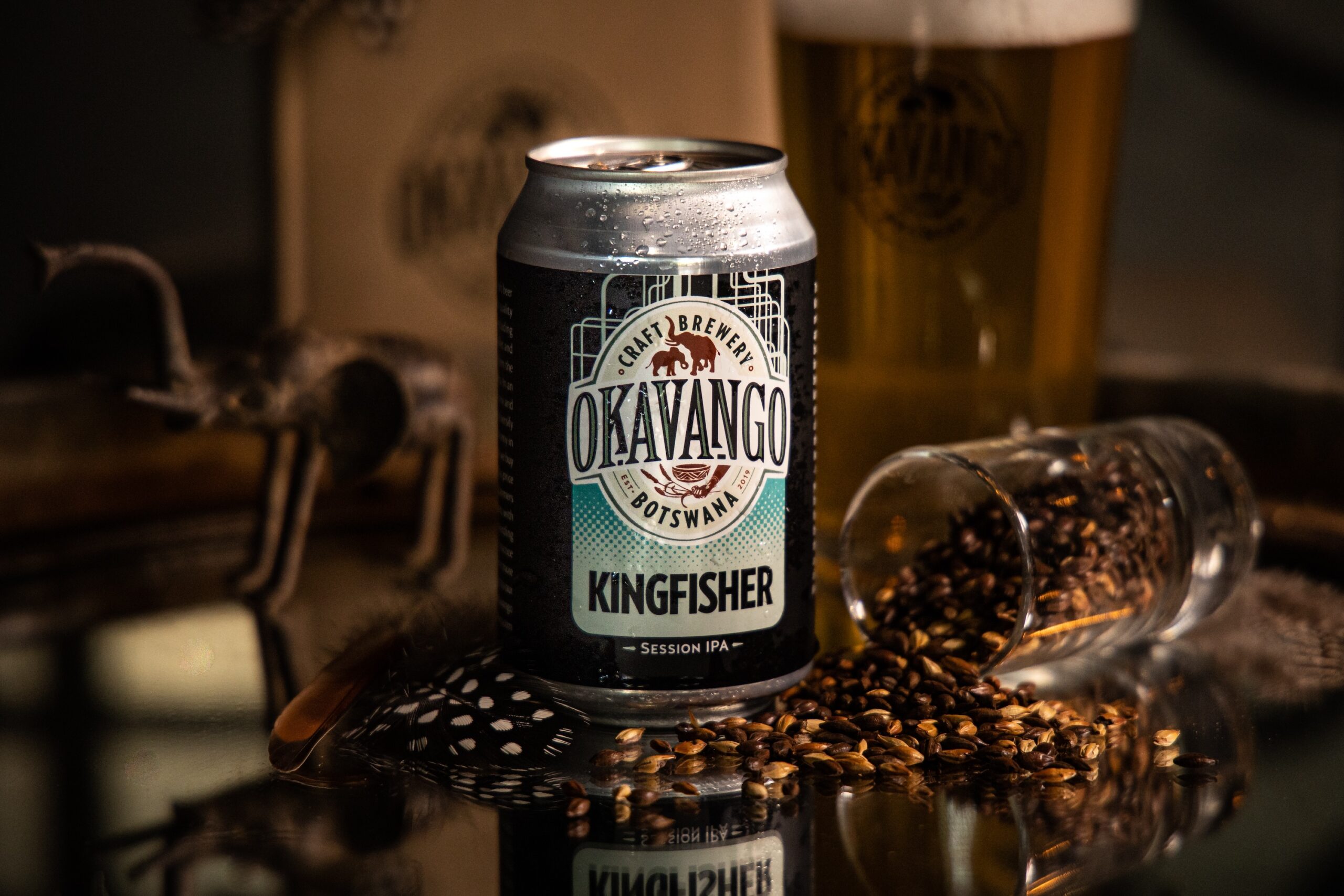
Image courtesy of Okavango Craft Brewery
The idea seemed perfect. Craft beer paired a “sexy” product to a brand built around conservation and community support. Beer sales could be driven through the local tourism industry, tapping into growing demand for local food and drink products while helping create lasting positive impressions of a destination.
Brewing Beer for Beasts
After two years of research and development, the Okavango Craft Brewery launched in February 2020. Unfortunately, the timing coincided with the onset of the global COVID-19 pandemic, forcing a temporary halt to operations. Despite this setback, the brewery’s investors remained committed to the concept, allowing for a restart in late 2021. The Okavango Craft Brewery taproom and headquarters officially opened its doors in Maun, Botswana in late 2023.
Beer names pay homage to life on the Delta. “Old Bull Irish Stout” references the old bull elephants found throughout the region. “Panhandle English style bitter Pale Ale” recalls the primary millet-farming swath of the Panhandle.
The brewery’s impact on local farmers has been nothing short of transformative. From an initial group of about 50 farmers, the program has grown to include nearly 100 with hundreds more eager to join. Farmers who avoid cultivating on elephant corridors, actively protect their fields with mitigation techniques, and practice conservation agriculture, qualify for a premium price on their millet. Farmers must keep and submit records of compliance to remain eligible for the program.
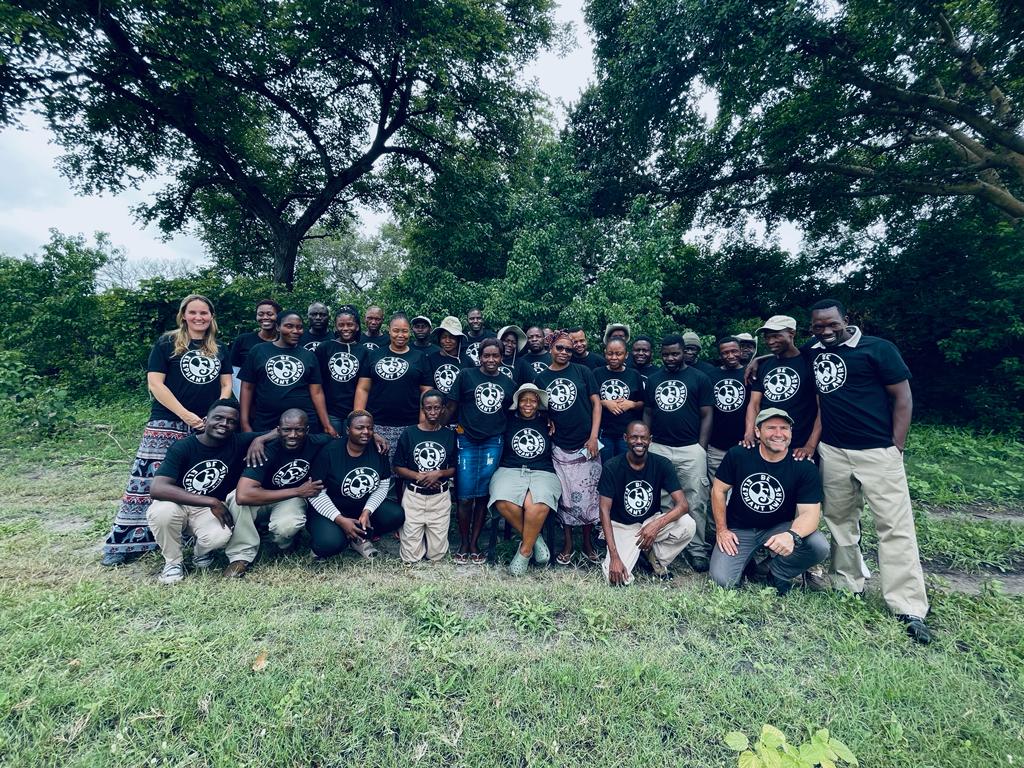
Image courtesy of Okavango Craft Brewery
Tourism and the Future of Okavango Craft Brewery
The brewery and taproom concept created by Okavango Craft Brewery blends local ingredients with the booming tourism sector of Botswana, boosting not only the visibility of Ecoexist’s mission, but the local economy as well.
“We wanted this to be something that the local tourism industry would grab hold of,” McCulloch says. “We thought it would be a value add for tour groups and the whole experience that they offer their guests. They can bring guests to Muan to try local beer.”
By connecting with the tourism industry, Okavango Craft Brewery hopes to scale its distribution across Botswana and beyond, potentially entering markets in South Africa, the UK and the US. This goal, however, has highlighted new challenges.
“One of the challenges is the supply chain infrastructure. There is none,” McCulloch says. “There’s no storage, there’s no processing equipment, there’s nothing. There’s no commercial farming in this area at all. So we’re basically building that from scratch and in order to scale now, we just need to put some key infrastructure in and make it easier for farmers to get to market,” he says.
The brewery is, however, ramping up online sales for merchandise like Okavango Craft Brewery cups, caps and T-shirts that have become popular.
“We just want to get our beer and our mission out to the world,” says McCulloch.
For more information, visit ecoexistproject.org or okavangocraftbrewery.com.

Heide Brandes is an award-winning journalist whose’ work appeared in National Geographic Traveler, The Wall Street Journal, The Smithsonian, Cowboys & Indians, Southern Living, Fodors, BBC Travel, ROVA, Outdoor x 4 Magazine and The Washington Post, and others. When not traveling and writing, Heide is an avid hiker, a medieval recreation enthusiast, a professional belly dancer and kind of a quirky chick from Oklahoma. Follow Heide on IG @heidewrite.


